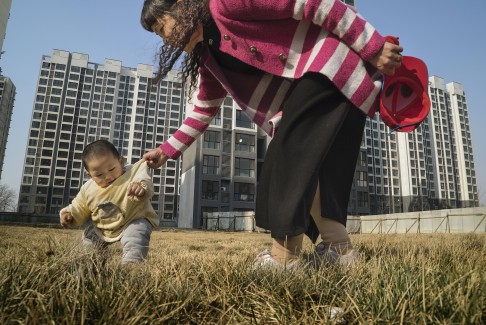
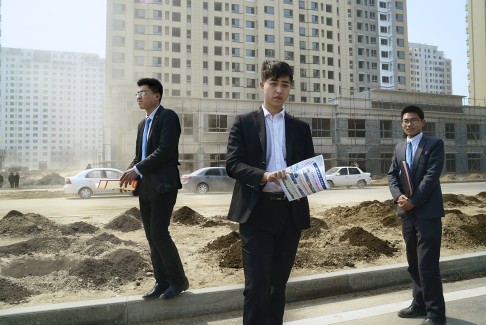
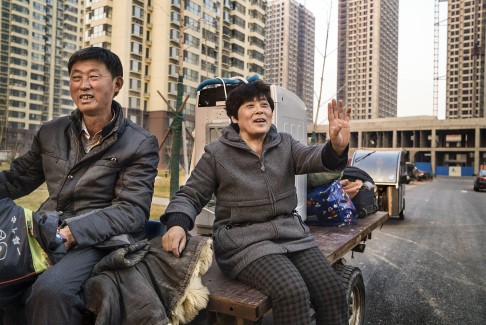
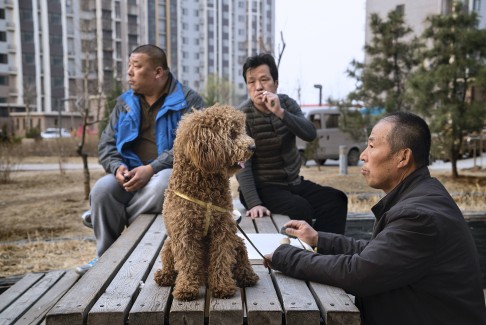
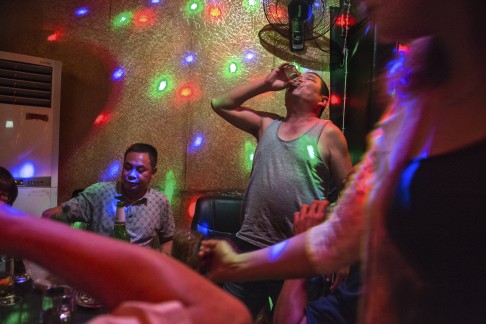
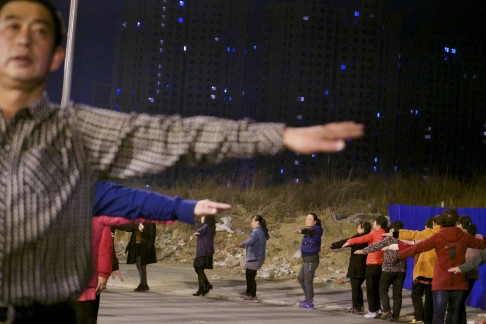
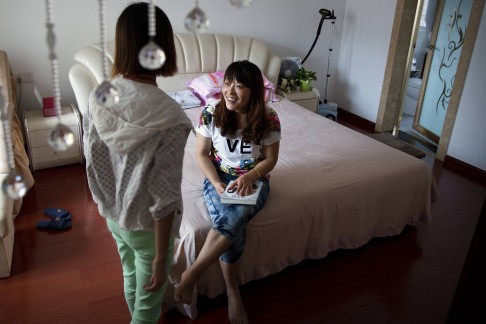
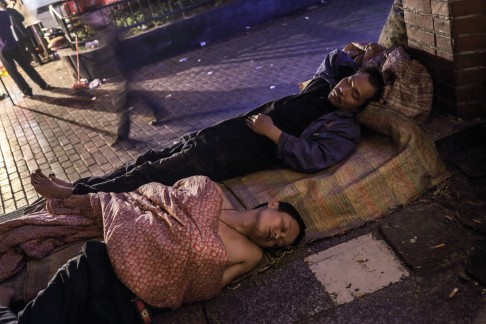
In the second of a two-part series on China’s massive urbanisation drive, photographer Justin Jin meets former farmers as they try to make themselves at home in an unfamiliar environment.
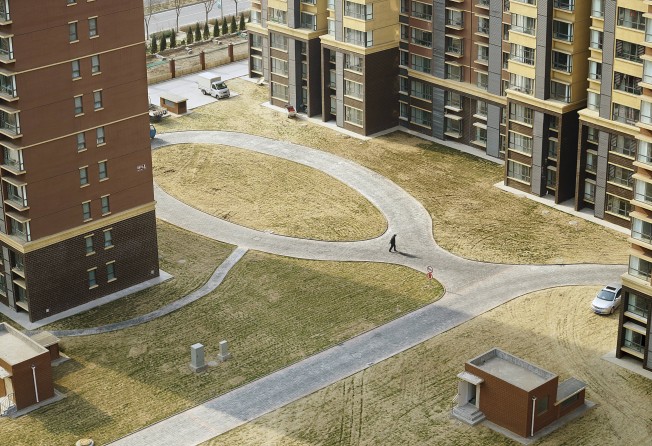
Faced with shrinking exports and slowing growth, Beijing is nonetheless pushing ahead with a gigantic, historic plan to uproot 100 million farmers and turn their fields into urban dwellings within six years – by 2020 – to create a giant middle class and boost economic demand.
This model calls for mass creation of jobs, schools, factories, offices, shopping malls – in short, a brand new consumer population of poor, uneducated farmers.
As apartment blocks are erected on farmland, villagers turn – willingly or not – into urbanites. Some have dubbed the strategy “warehousing”, in reference to the vertical stacking of farmers to free up land for commercial use. Some pop-up cities are already inhabited, others are little more than blueprints.
Despite nearly four decades of economic reforms, this is not a change people are enduring quietly. Land disputes arising from urbanisation account for tens of thousands of protests each year. But, as I photograph individual farmers swept up by these abrupt changes and document an economic phenomenon that is shaping the world’s future superpower, the majority grudgingly see a bright side. Many families tell me they yearn to have their land seized in return for relatively luxurious apartments.
This week’s pictures focus on the new urban lifestyles being forged by people who, until very recently, made their livelihoods from the land.
Desktop users, click on image below to launch photo gallery









About Justin Jin
Justin Jin was born in 1974, in Hong Kong. He attended La Salle Primary School and College, in Kowloon, before leaving for the UK, where he graduated from Cambridge University. He worked as a Reuters correspondent before picking up a camera to pursue an international photography career. He is the recipient of a Magnum Foundation grant, a Picture of the Year International Award and a World Press Photo Masterclass scholarship, among other prizes, and now splits his time between Europe and Asia, calling Hong Kong his “true home". Visit www.justinjin.com.